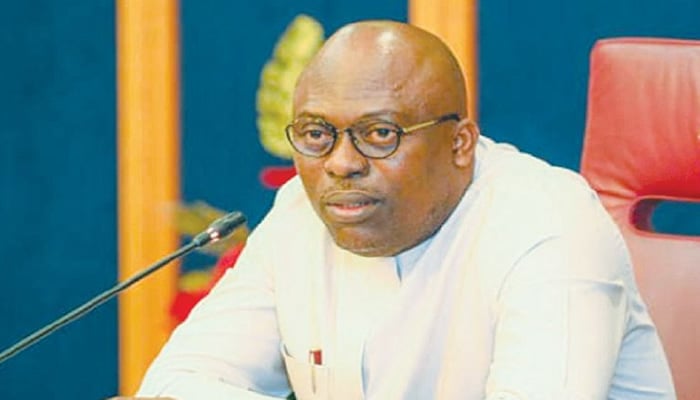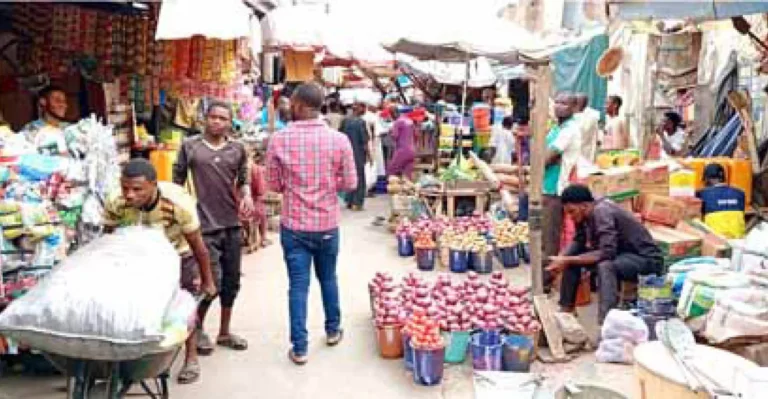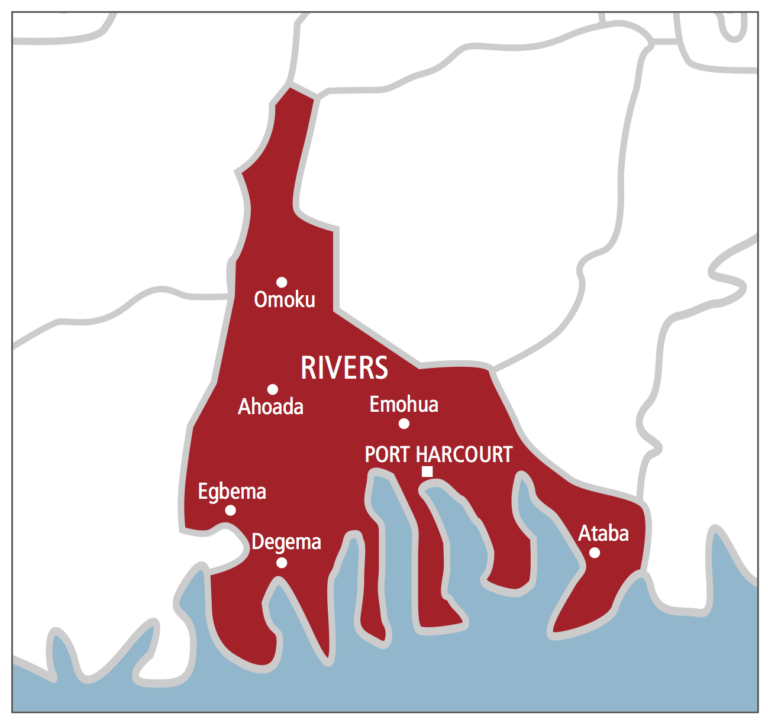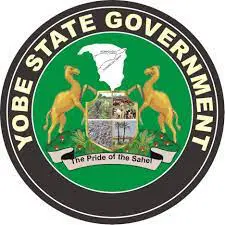
Rivers State Governor, Siminalayi Fubara, on Monday in Abuja said he is at peace with his political benefactor.
He also noted that “proper peace” has returned to the state after a months-long feud that triggered an emergency rule in March.
Speaking to journalists after meeting President Bola Tinubu at the Aso Rock Villa in Abuja, Fubara stressed that he had resumed his duties in an atmosphere of peace and cooperation.
“As far as I’m concerned, we have made peace. Fubara and his principal are working together,” the governor said, referring to his estranged predecessor and current Minister of the Federal Capital Territory, Nyesom Wike.
Fubara also revealed that his visit to Tinubu was a courtesy call and an opportunity to seek direction following the expiration of the six-month emergency rule that saw his suspension and those of key political leaders of the state.
“Ideally, it’s proper for me to see Mr. President and to tell him that I’m back, and I’ve also resumed my responsibility as the governor of Rivers State,” he said, adding, “It’s not much. It’s a father-son discussion, telling him thank you, and the areas where, if at all, there should be any issue for him to guide me properly so we don’t get in any situation of crisis.”
Tinubu lifted the emergency rule on September 17, restoring the offices of governor, deputy governor and the House of Assembly after a political impasse between Fubara and Wike that had crippled governance.
The Supreme Court had earlier declared that “there was no government in Rivers State,” citing the collapse of relations between the loyalists of both men in the assembly.
The crisis threatened governance in the oil-rich state as vital pipelines came under attack in the days leading to Tinubu’s declaration of emergency rule.
Meanwhile, Fubara on Monday lamented the huge economic opportunities lost due to the underutilisation of the state’s two seaports, warning that unless their capacities are optimised, both Rivers and Nigeria will continue to miss out on jobs, investments, and industrial growth.
The governor stated this when he received a delegation of the Nigerian Ports Authority Board and Management, led by its Chairman, Senator Adeyeye Adedayo Clement, on a courtesy visit to Government House, Port Harcourt.
In a statement by his Chief Press Secretary, Nelson Chukwudi, the governor said seaports remain critical to national development, noting that world-class ports and airports drive prosperity in many countries.
He stressed that despite being strategically blessed with the Port Harcourt and Onne seaports, Rivers had yet to fully harness their potential.
“We are blessed with the Port Harcourt and Onne seaports, but the truth is they are underutilised. Imagine if Onne Port was working at full capacity—the level of activities around Eleme, Tai, and the surrounding areas would transform the entire state’s economy. It will drive employment, create opportunities in manufacturing, and expand clearing and forwarding operations,” he said.
Fubara explained that maximising the capacity of both ports would attract industries seeking proximity to export facilities, reduce logistics costs, and boost investor confidence. He added that the ripple effects would include job creation, business growth, and higher tax revenues.
He also highlighted the relatively peaceful environment in Rivers under his administration, which, he noted, had fostered smoother relations between host communities, government, and the port authority compared to the disruptions seen elsewhere.
On infrastructure, the Governor decried the poor federal roads linking the ports, describing them as a major hindrance to operations. While acknowledging that road repairs were a federal responsibility, he pledged state support through traffic management, discipline among trailer drivers, and complementary measures to ease congestion.
Fubara further promised to enhance security within the port precincts by establishing a new police station. He linked insecurity to unemployment, stressing that reviving port activity would reduce youth restiveness and crime.
“Most of these societal issues stem from unemployment. If activities pick up at the ports, nobody will want to be a criminal when there are genuine opportunities to make a living,” he said.
The Governor also cautioned against encroachment on port lands, warning that such practices undermine development. He urged the NPA Board to provide details of encroachment cases for immediate government intervention.
On flooding, he explained that poor access roads and drainage were the major causes and assured that the state would collaborate with the NPA on remedial works once the problem areas were identified.
Commending the board for partnering with the state before embarking on intervention projects, Fubara said such collaboration would ensure community buy-in and sustainability. “When government is part of your programmes, it means you have already succeeded, because the government represents the people,” he noted.
He pledged his administration’s full support to the NPA, urging the Board to transform the seaports into engines of economic growth rather than “monuments of neglect.”
In his remarks, NPA Board Chairman, Senator Adeyeye Adedayo Clement, said Nigeria’s littoral states are endowed with rich marine resources that are veritable catalysts for growth. He pledged the Board’s commitment to reviving operations at the Port Harcourt and Onne seaports and sought the state government’s support in rehabilitating access roads, ensuring environmental cleanliness, curbing illegal truck parking, and establishing a police post to tackle insecurity.
PUNCH.




